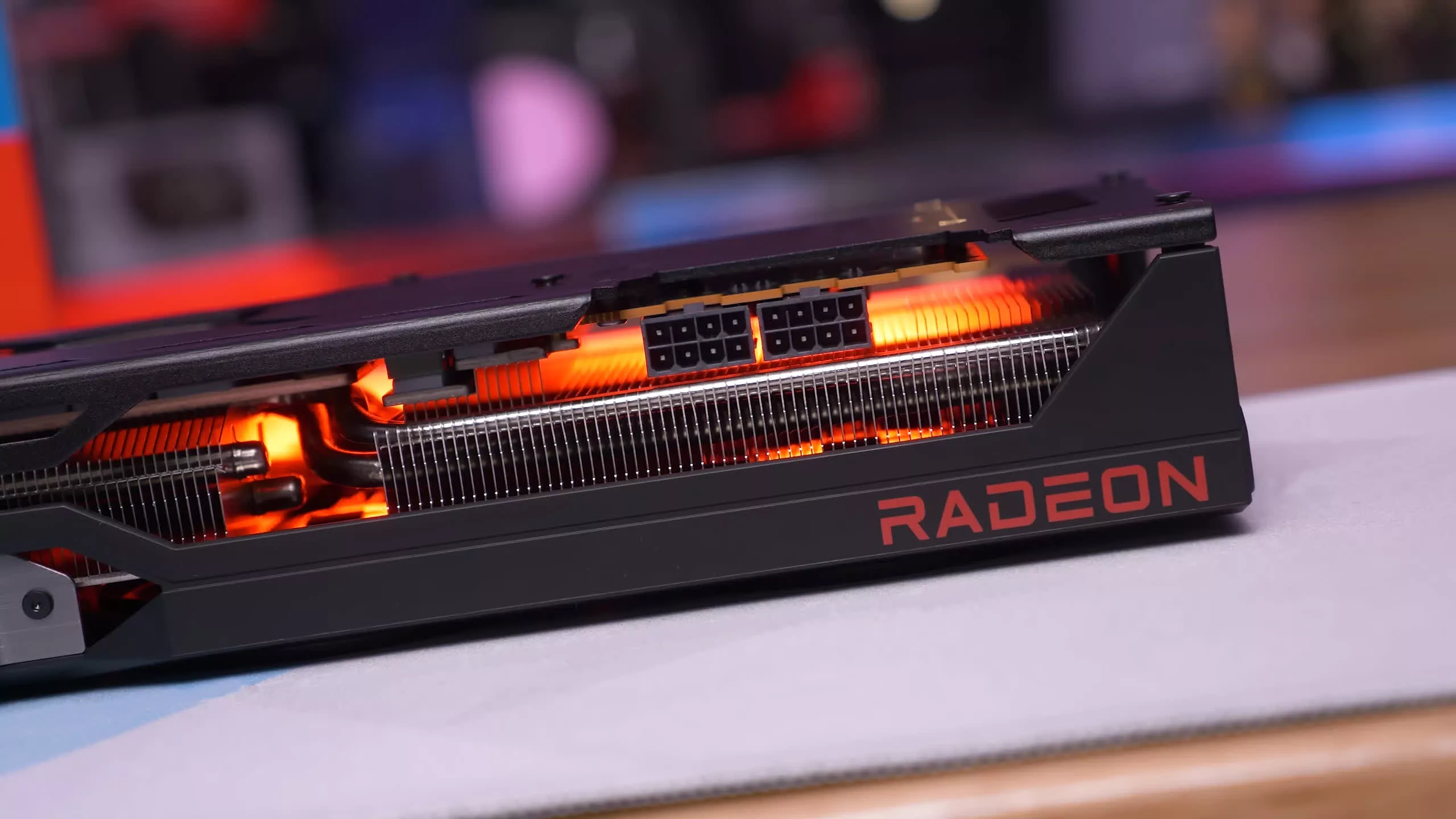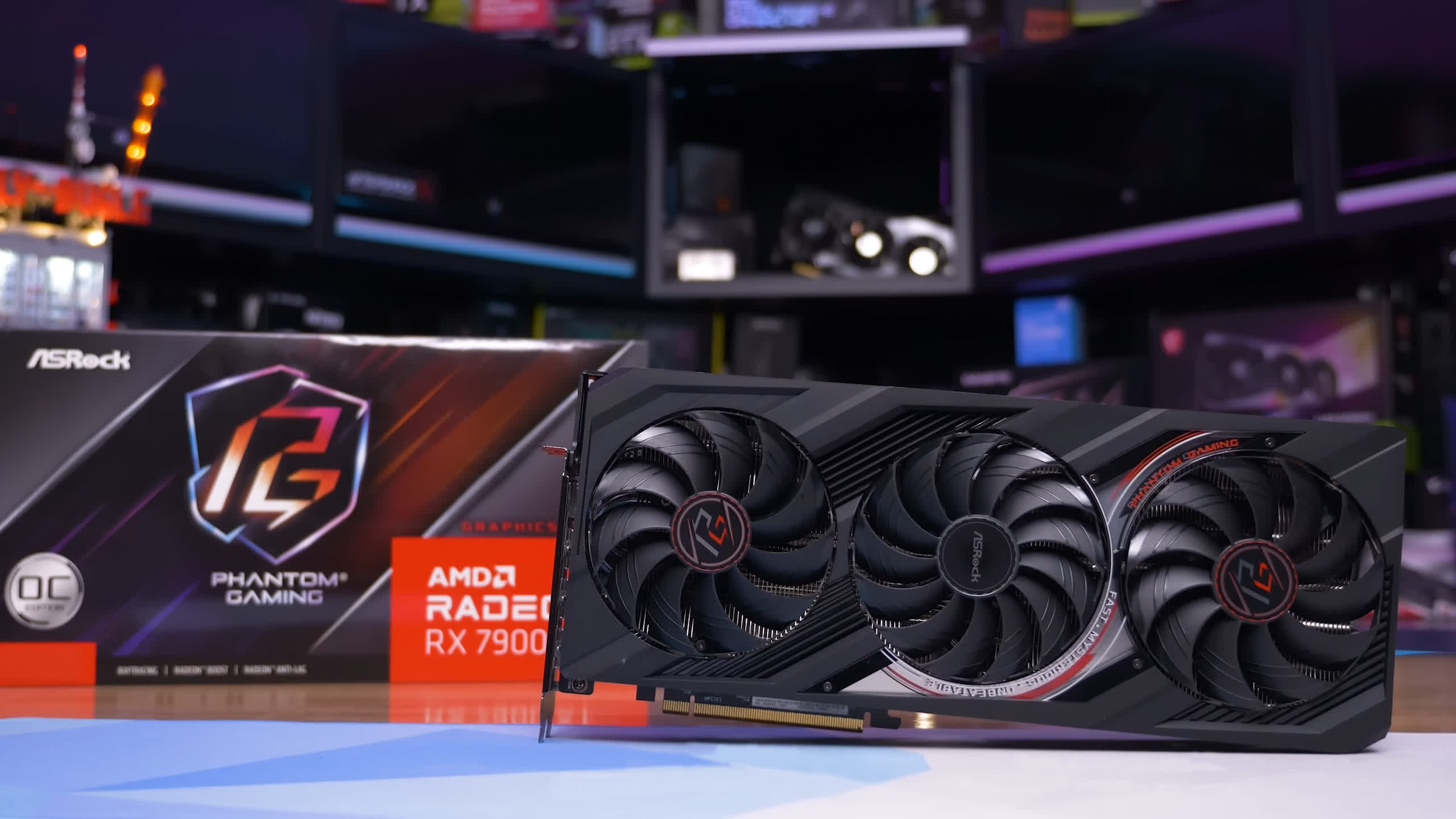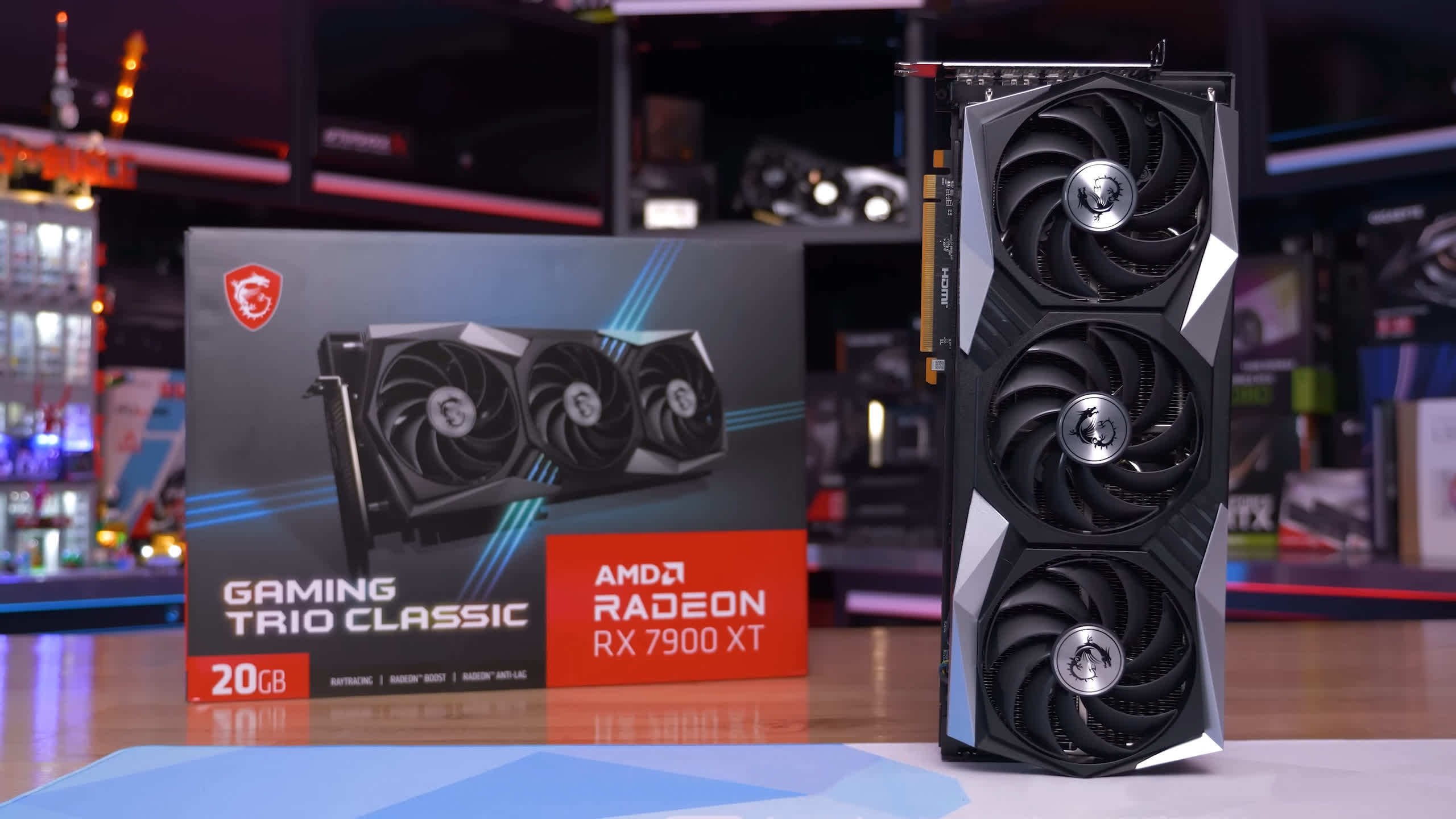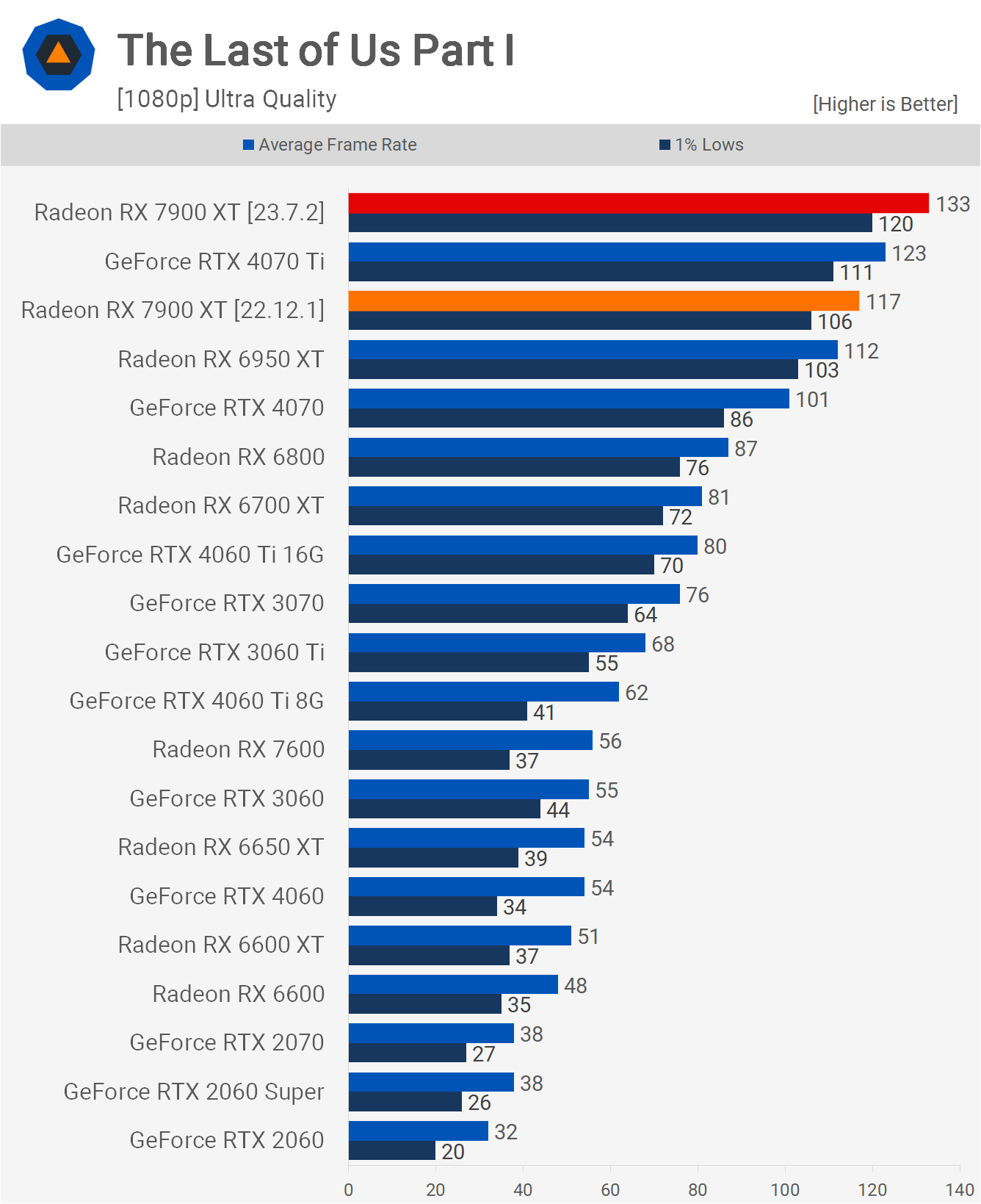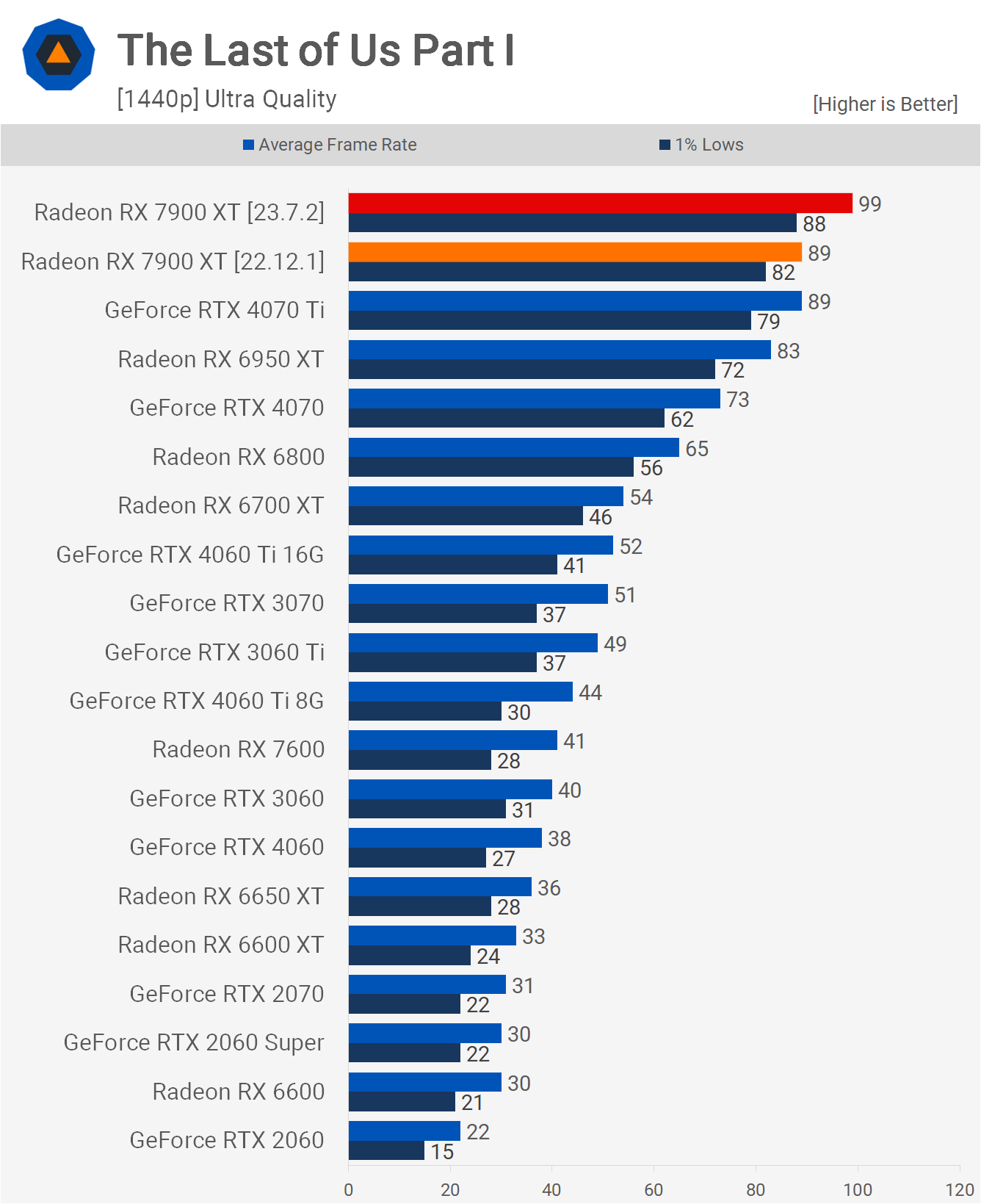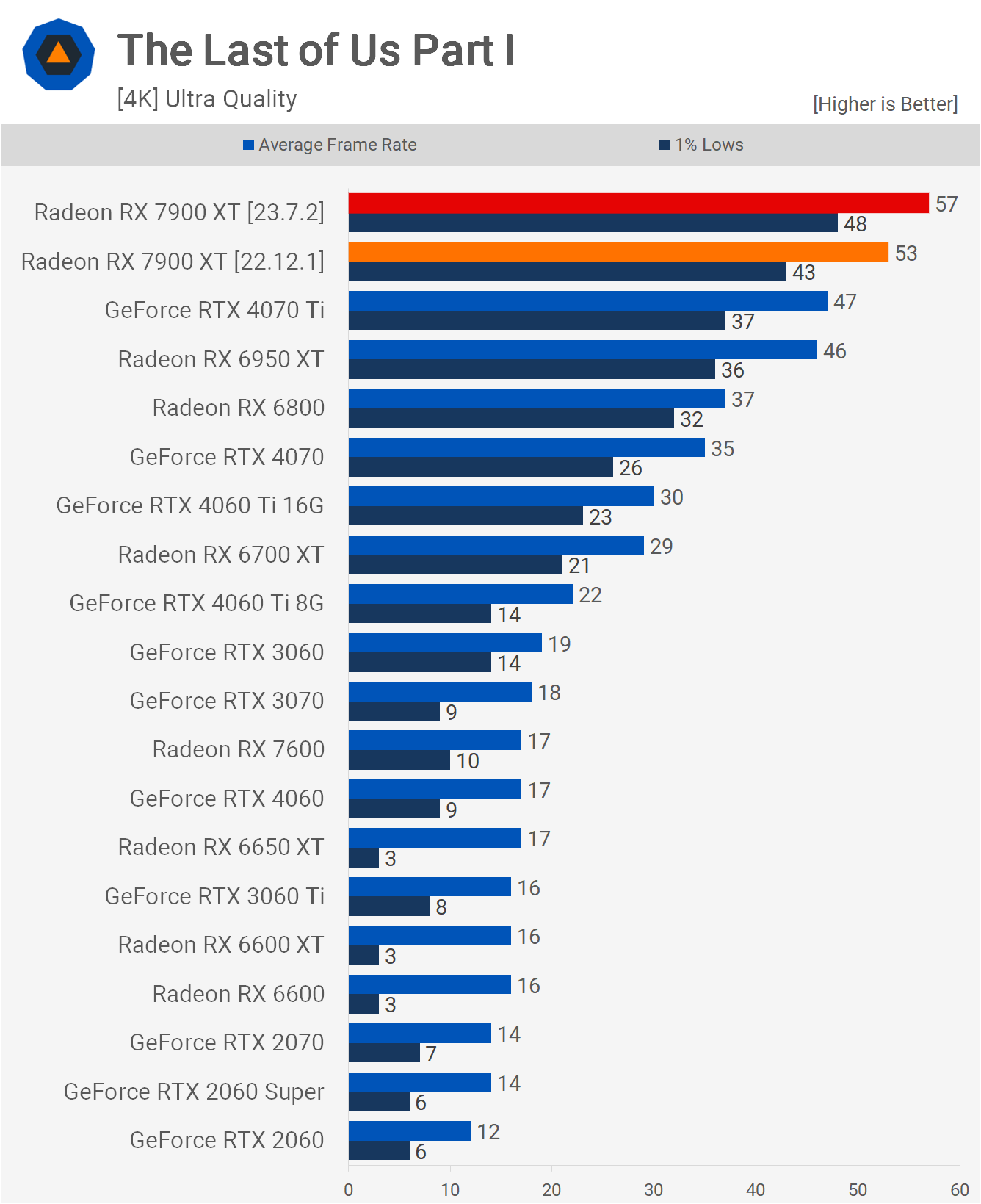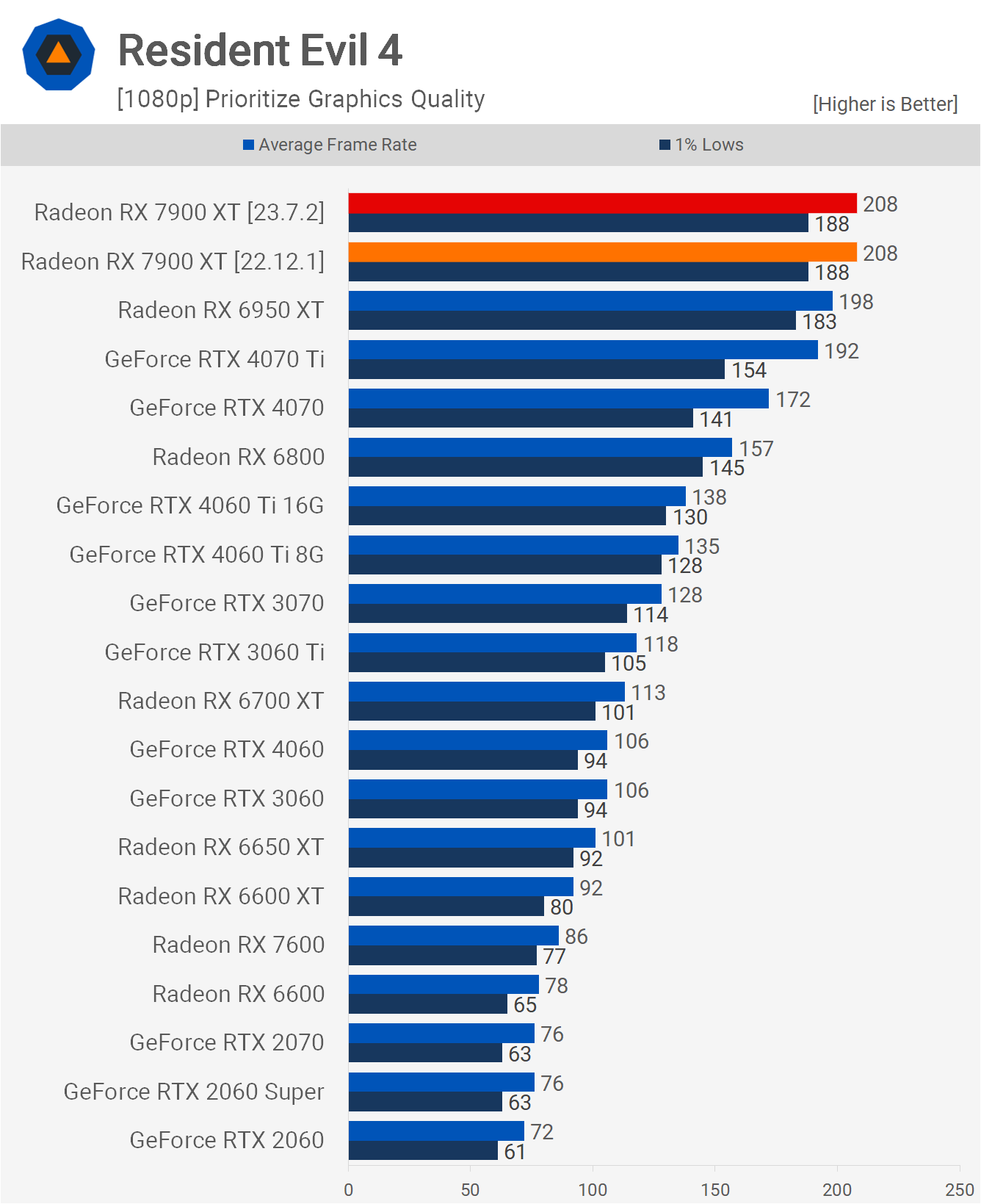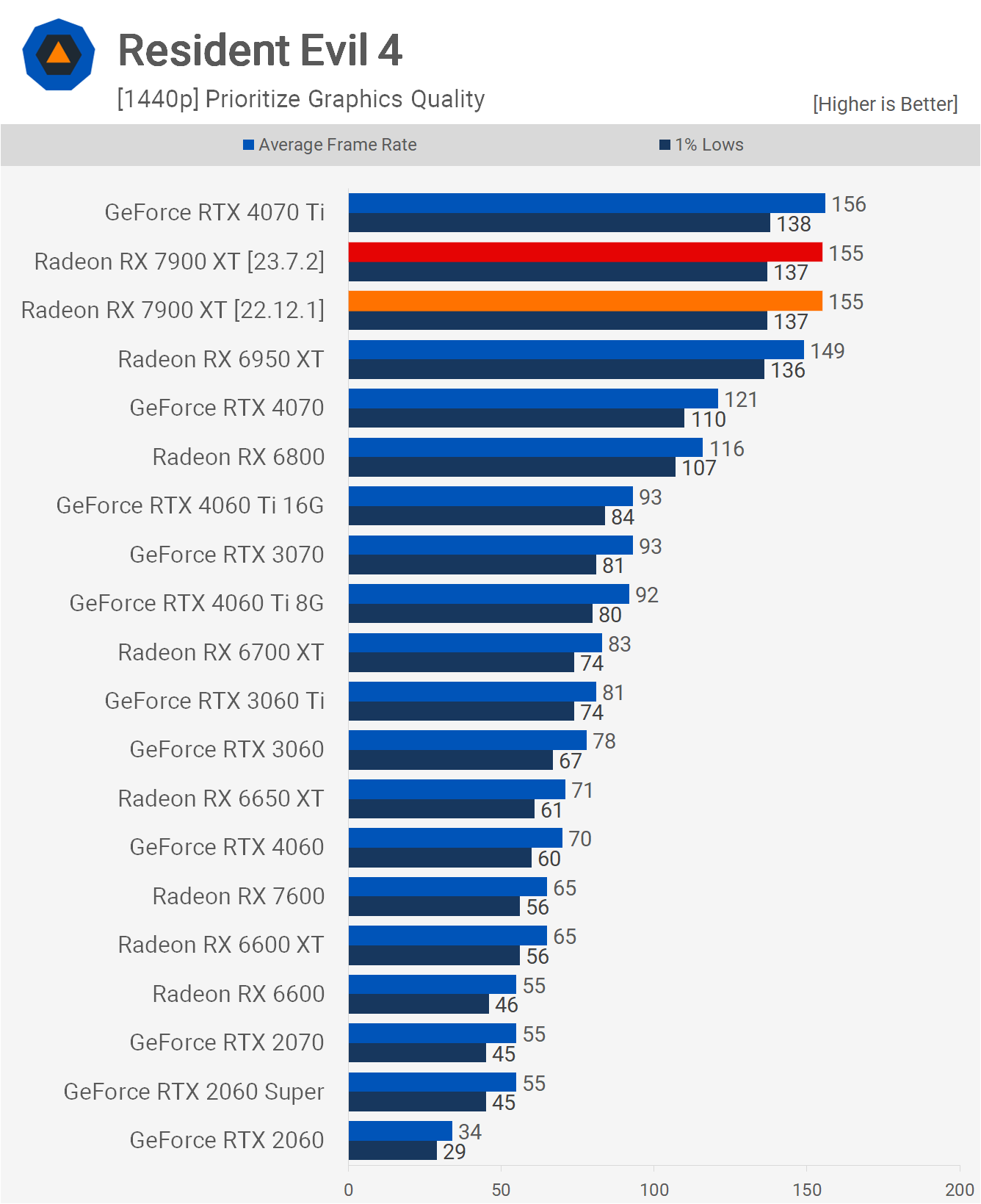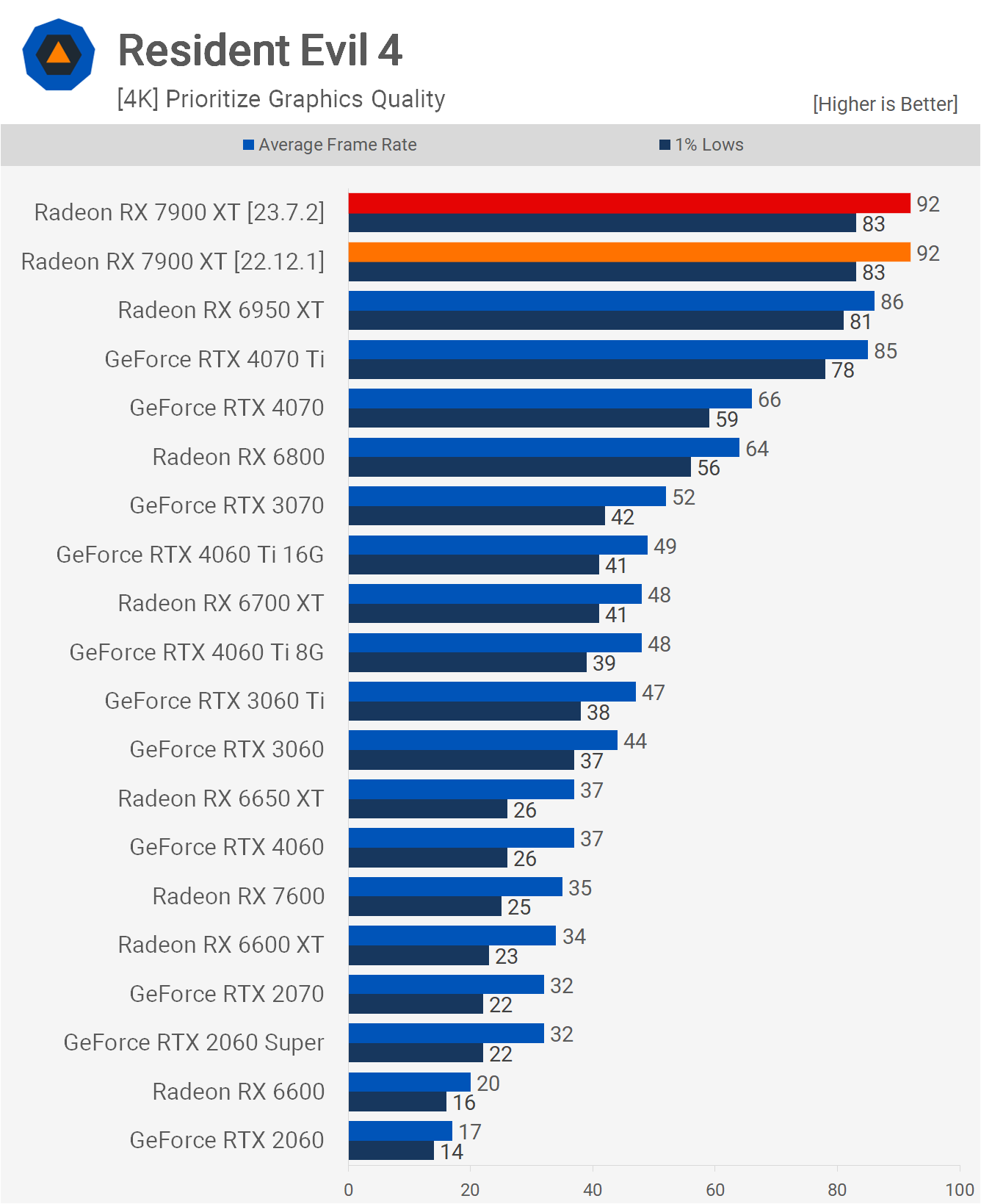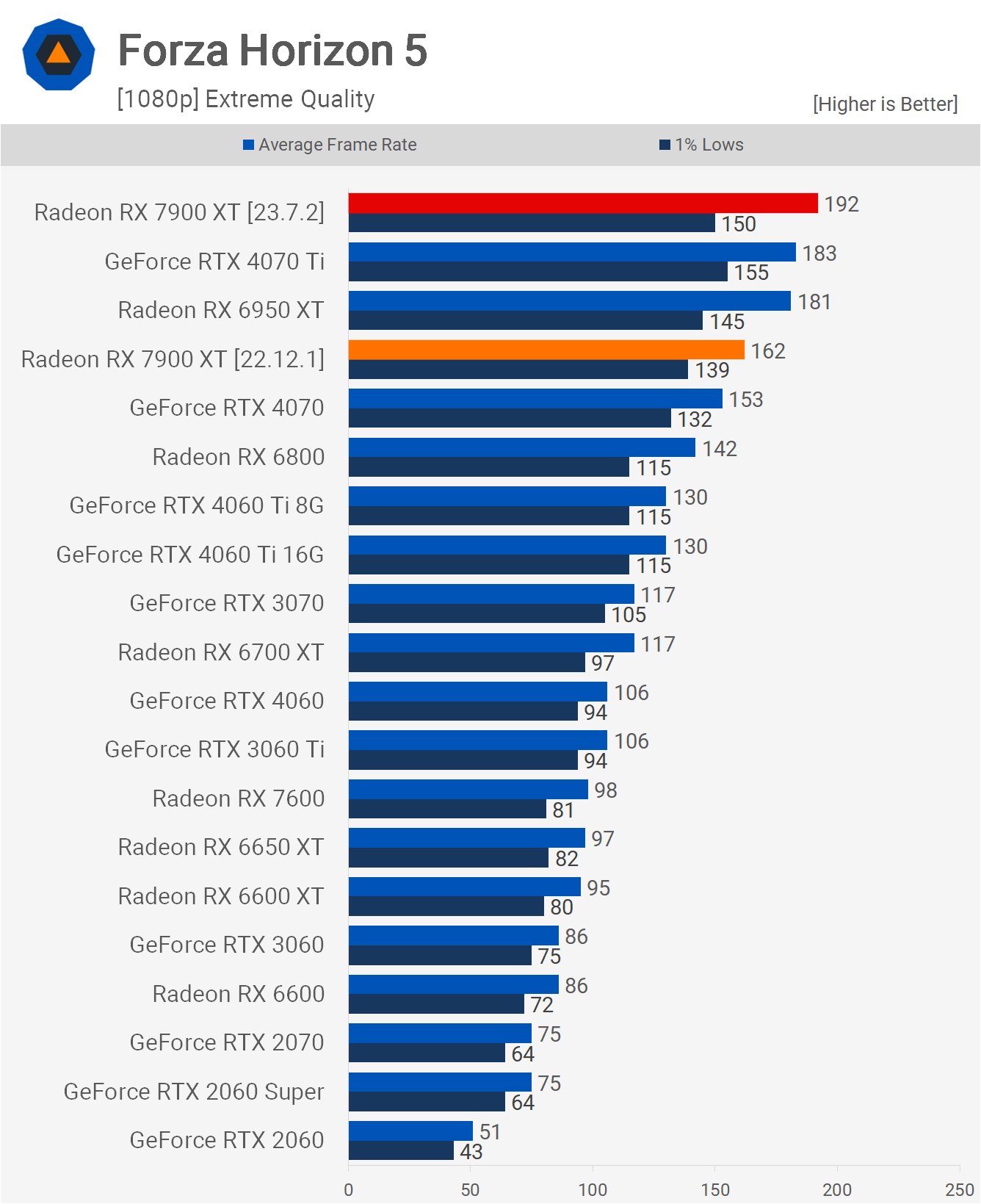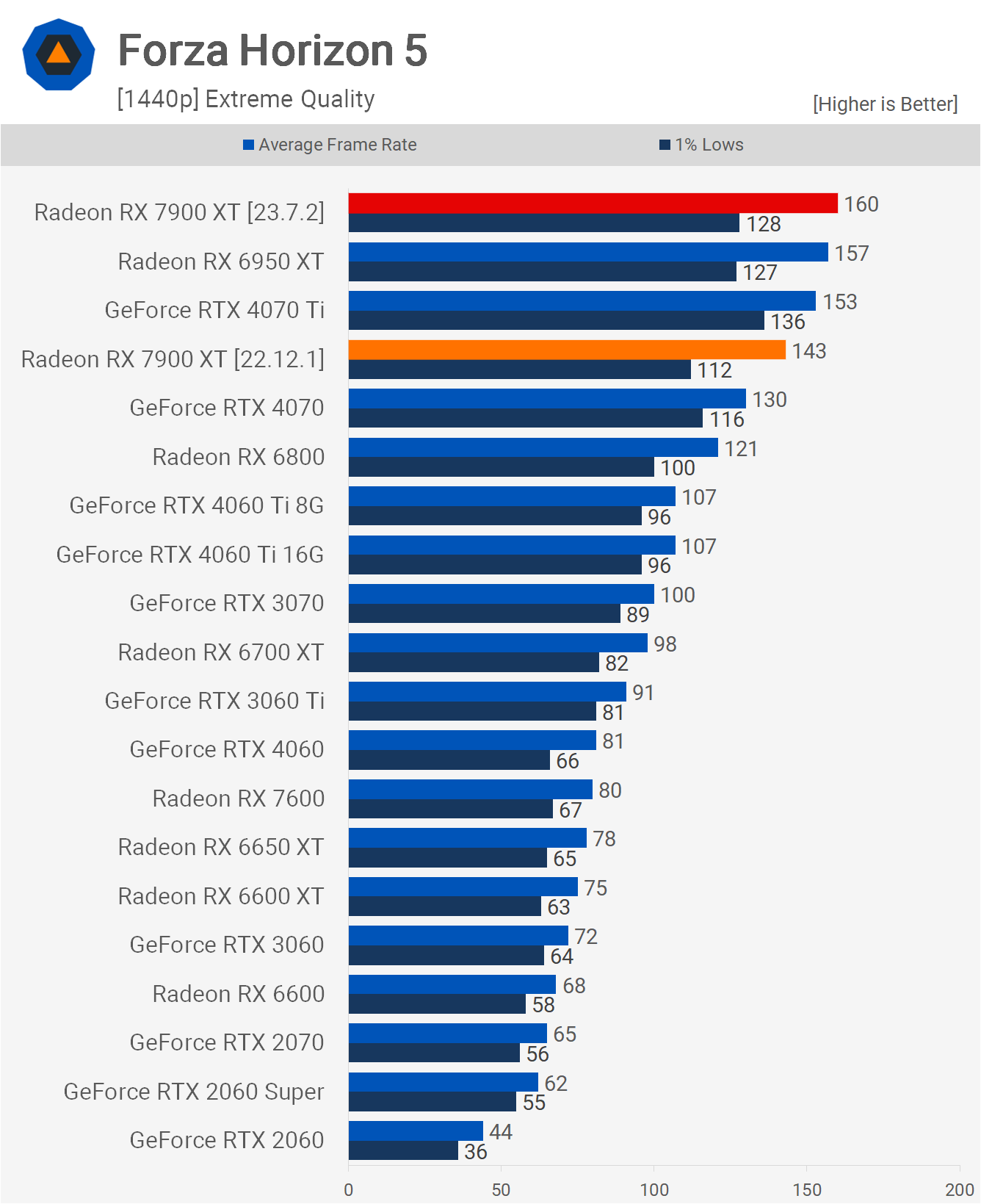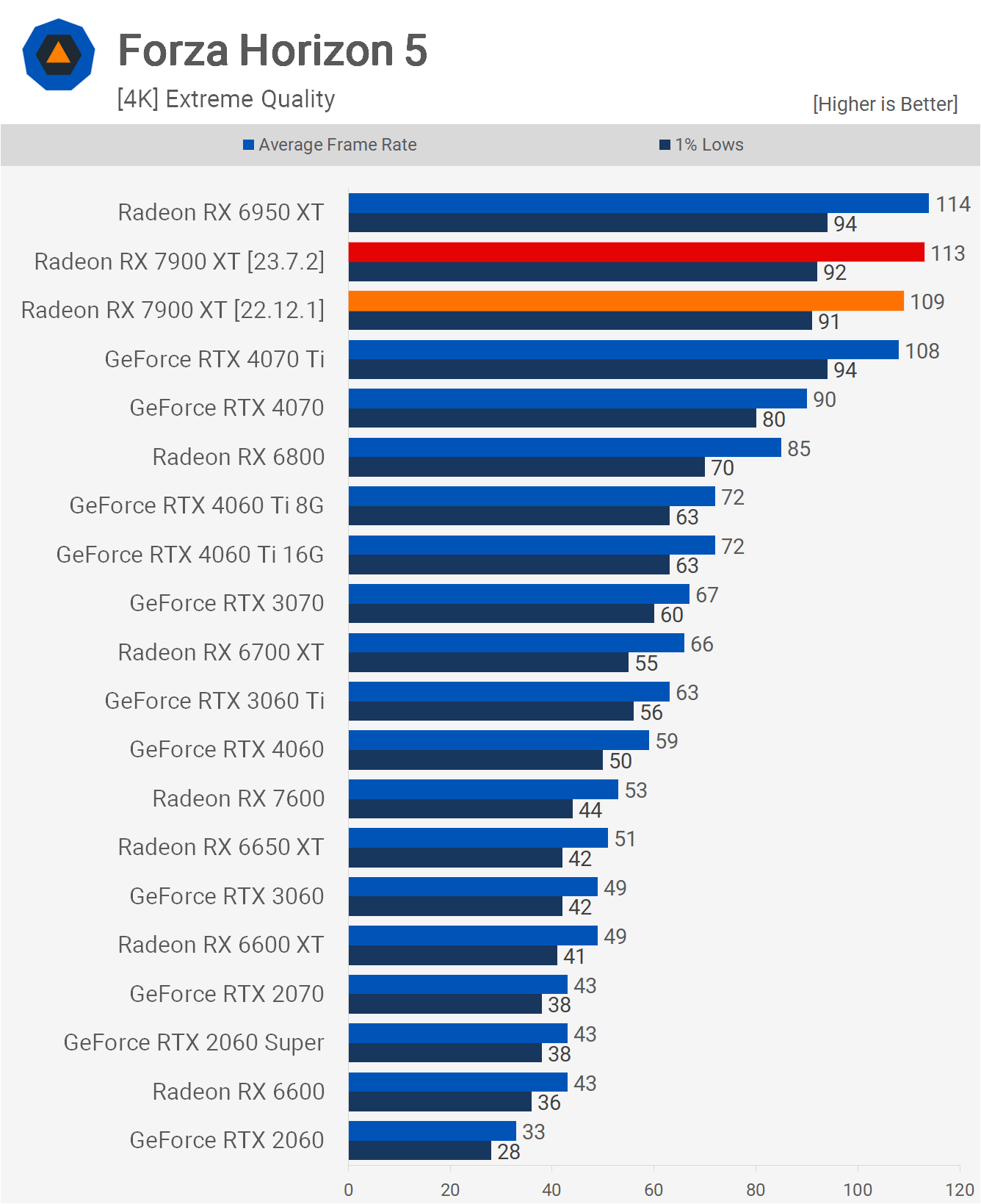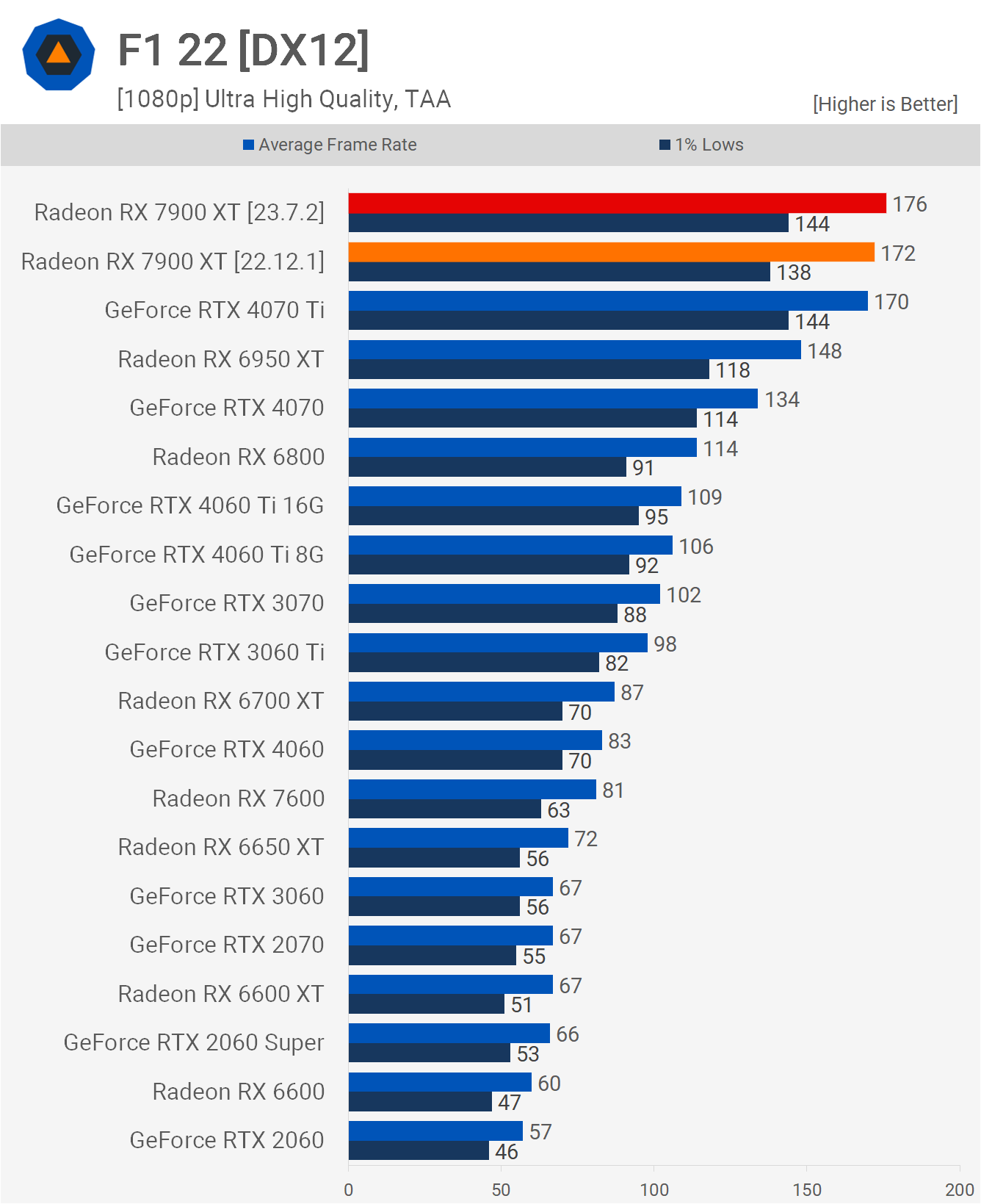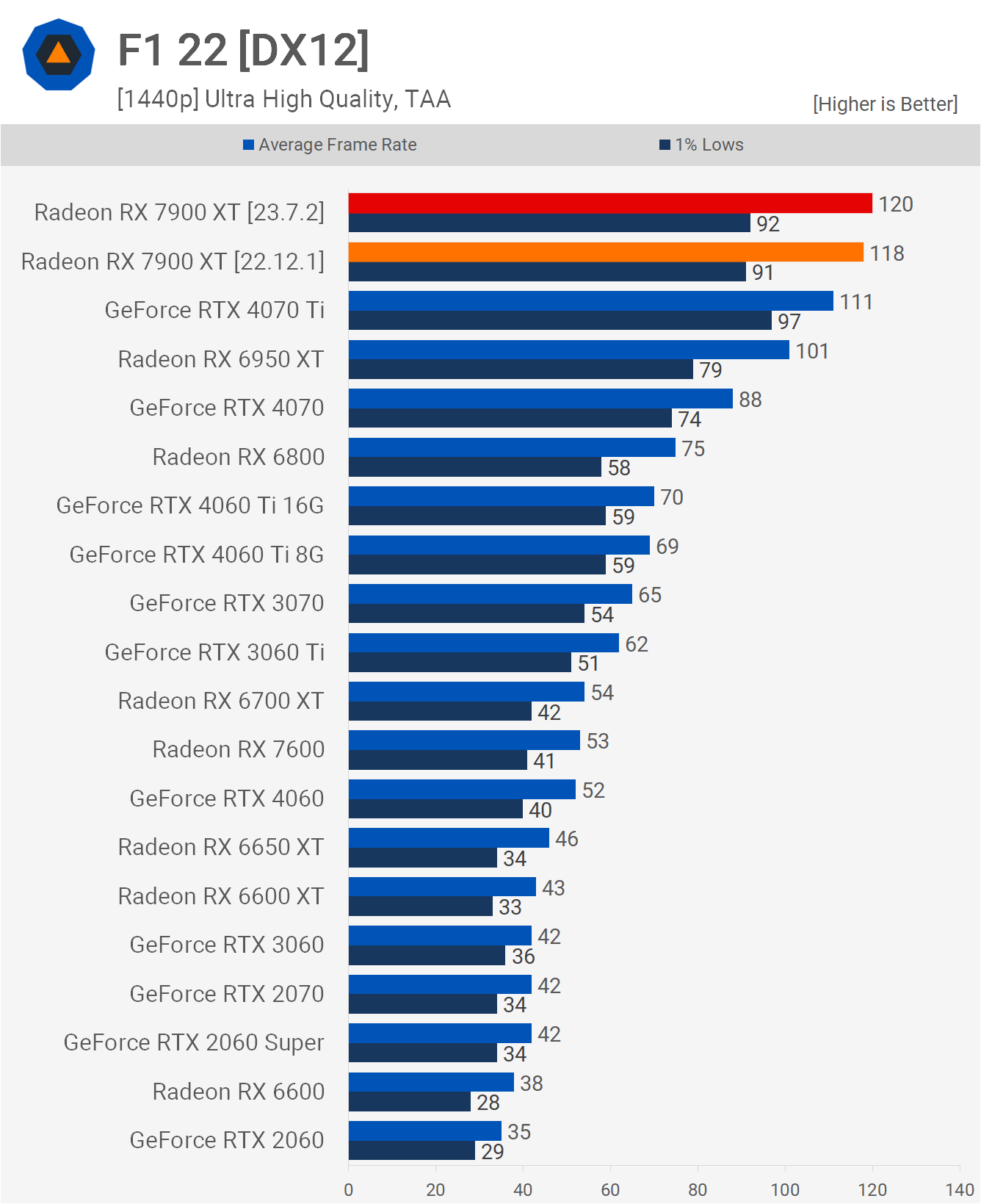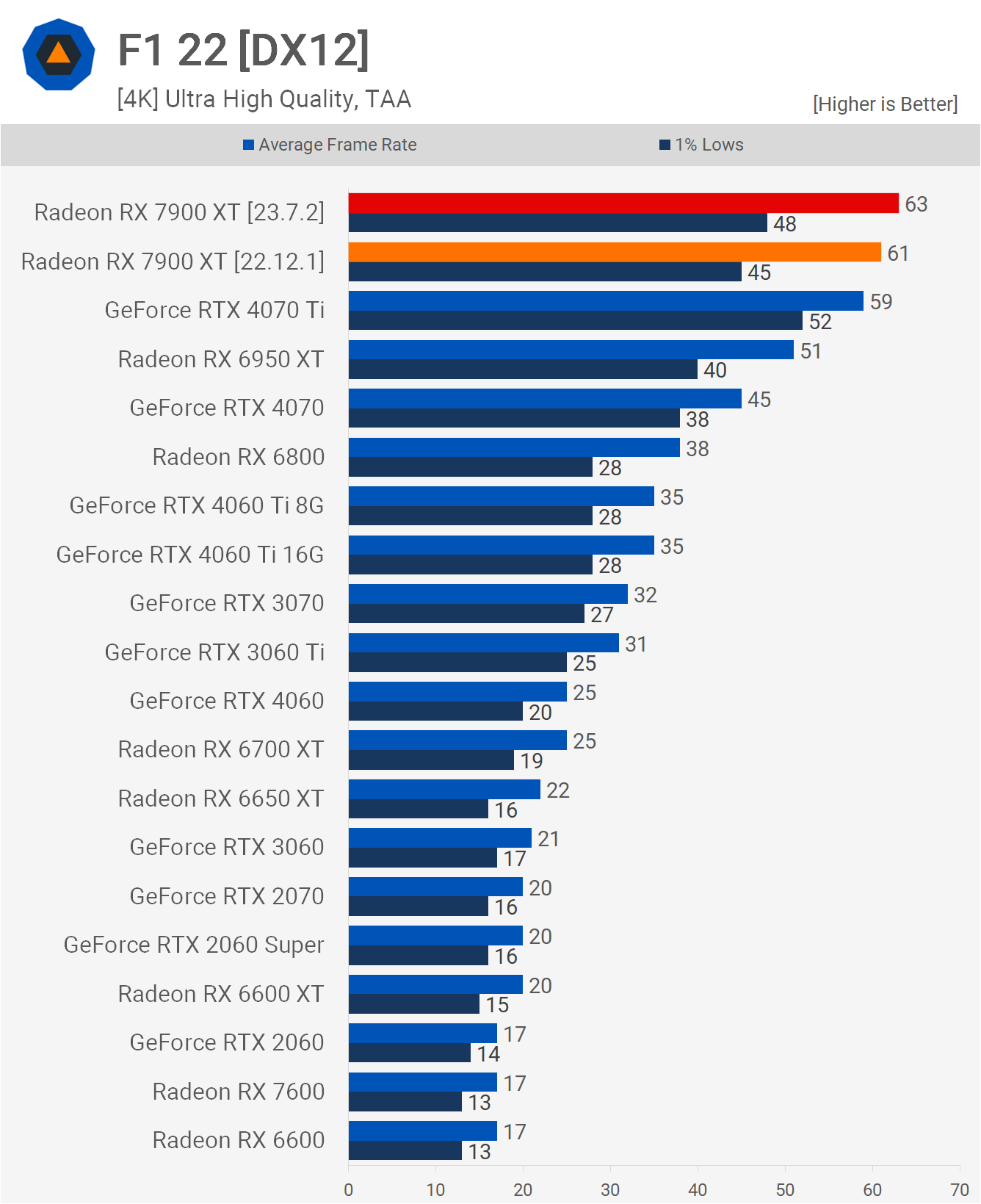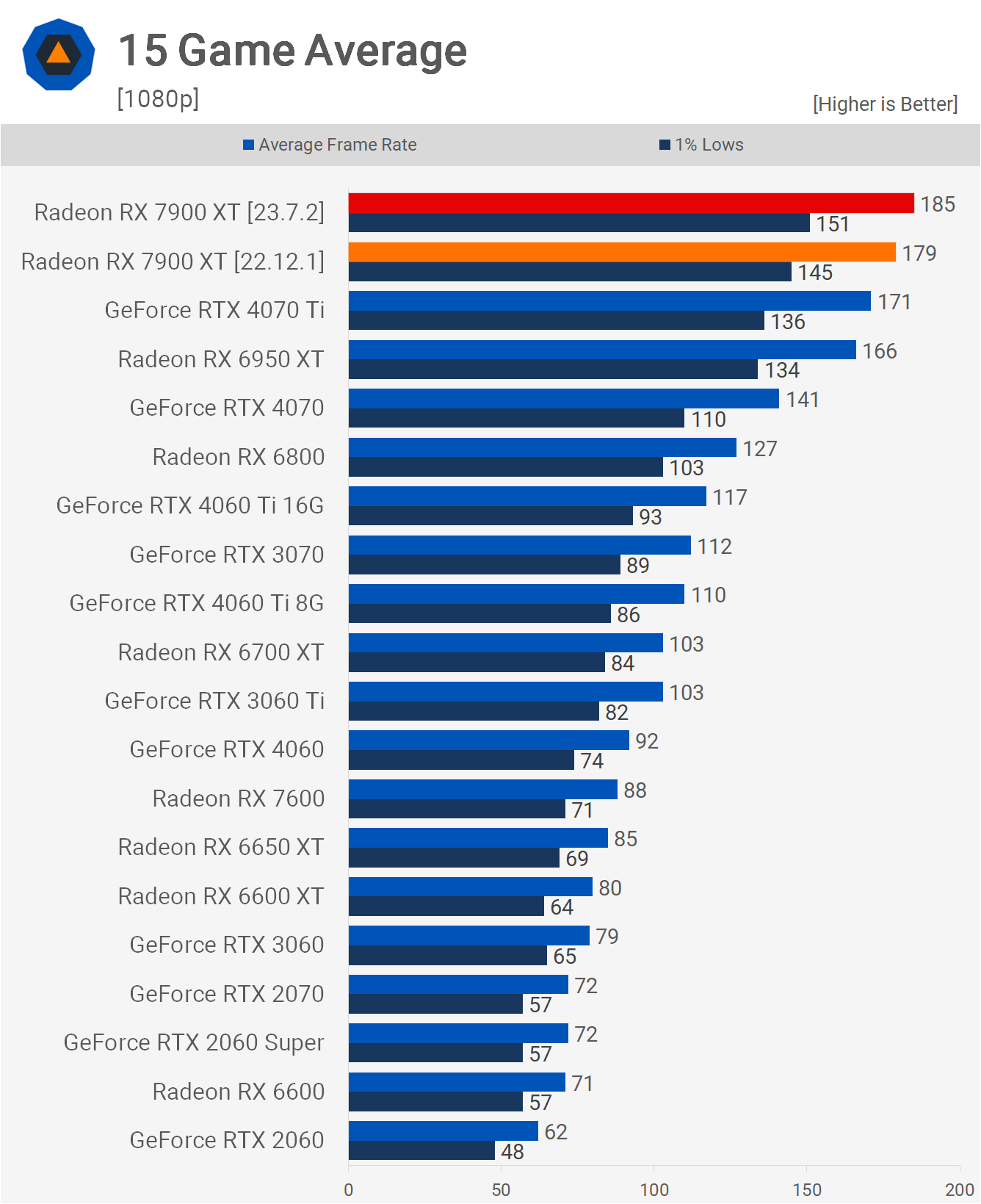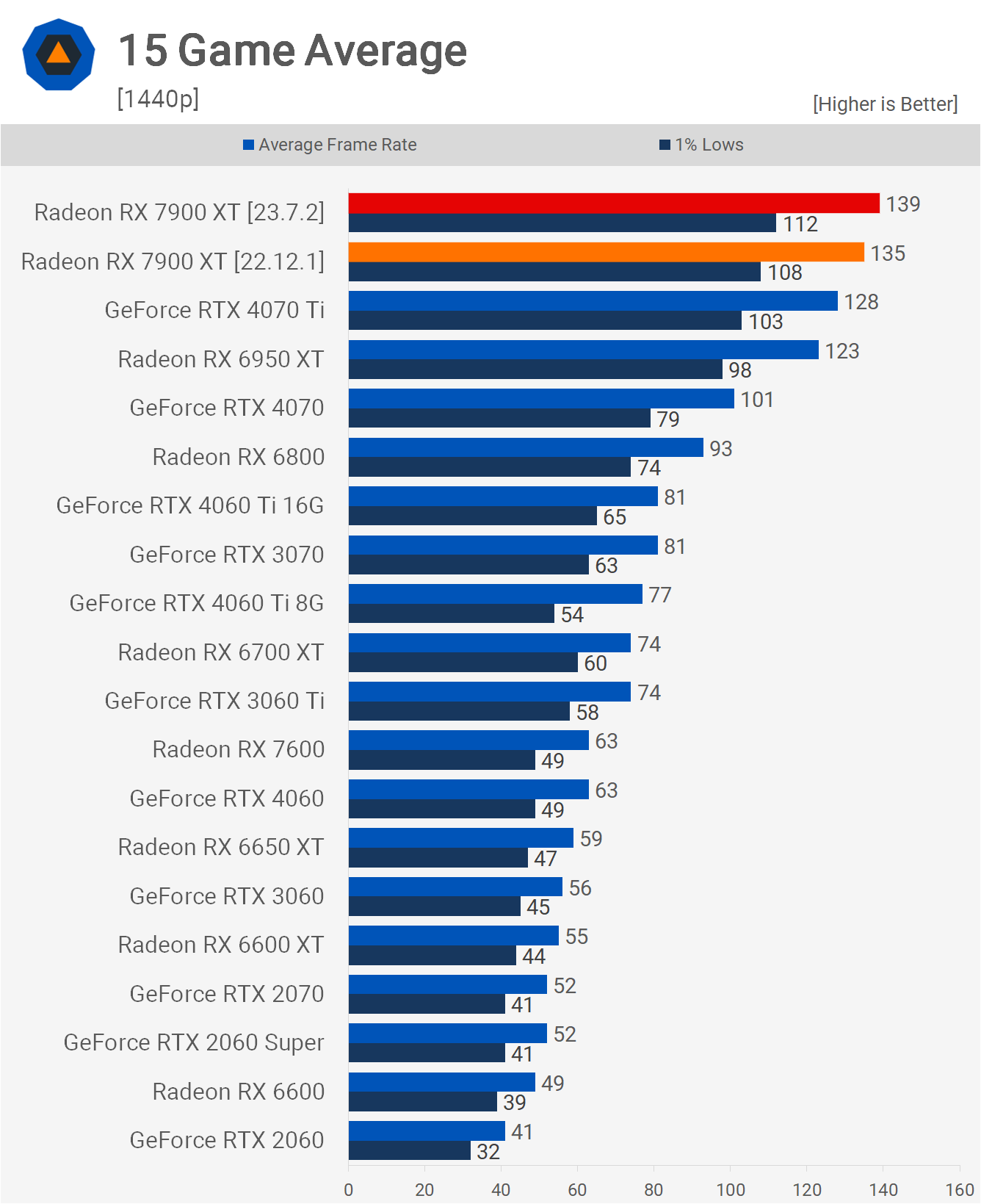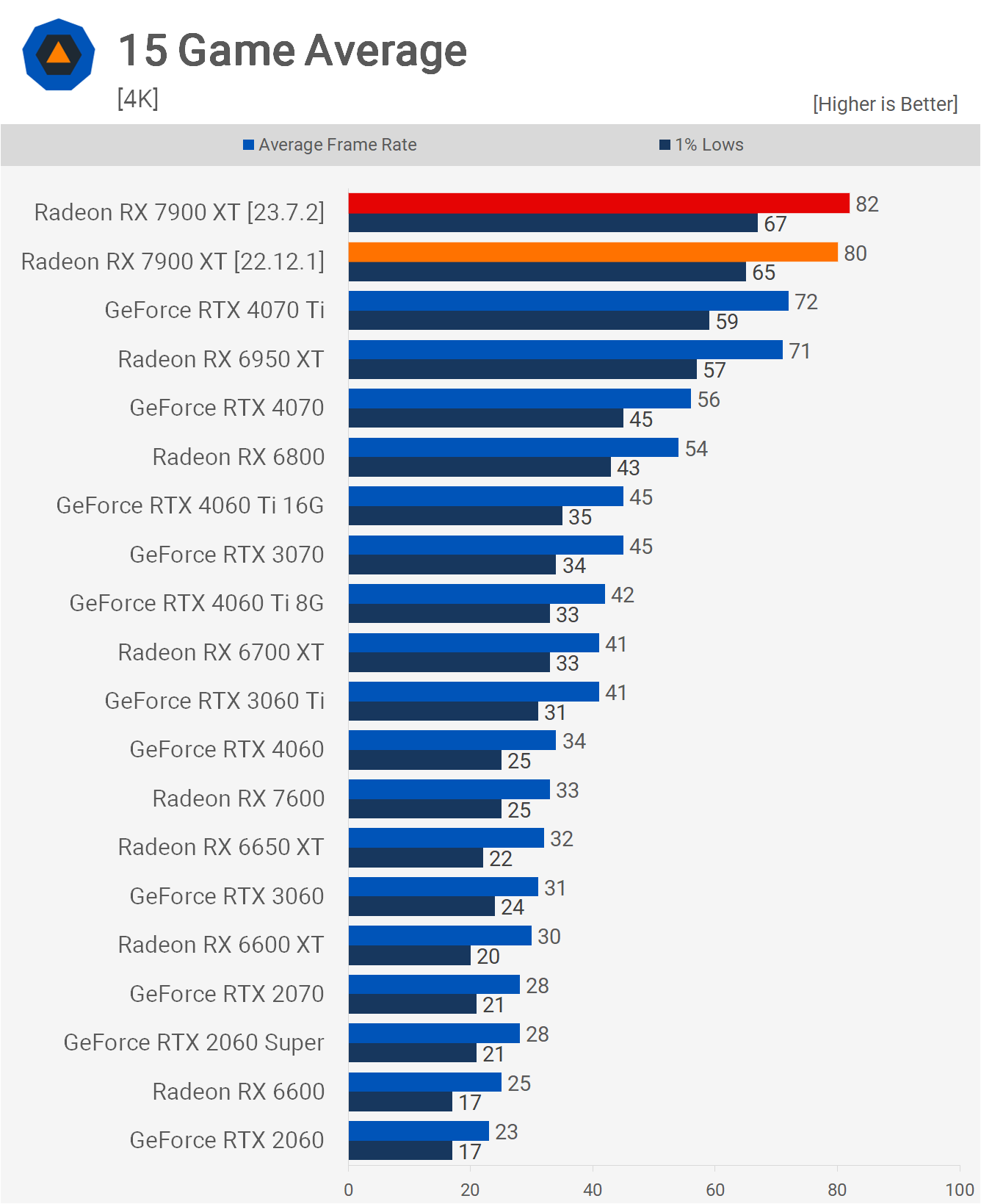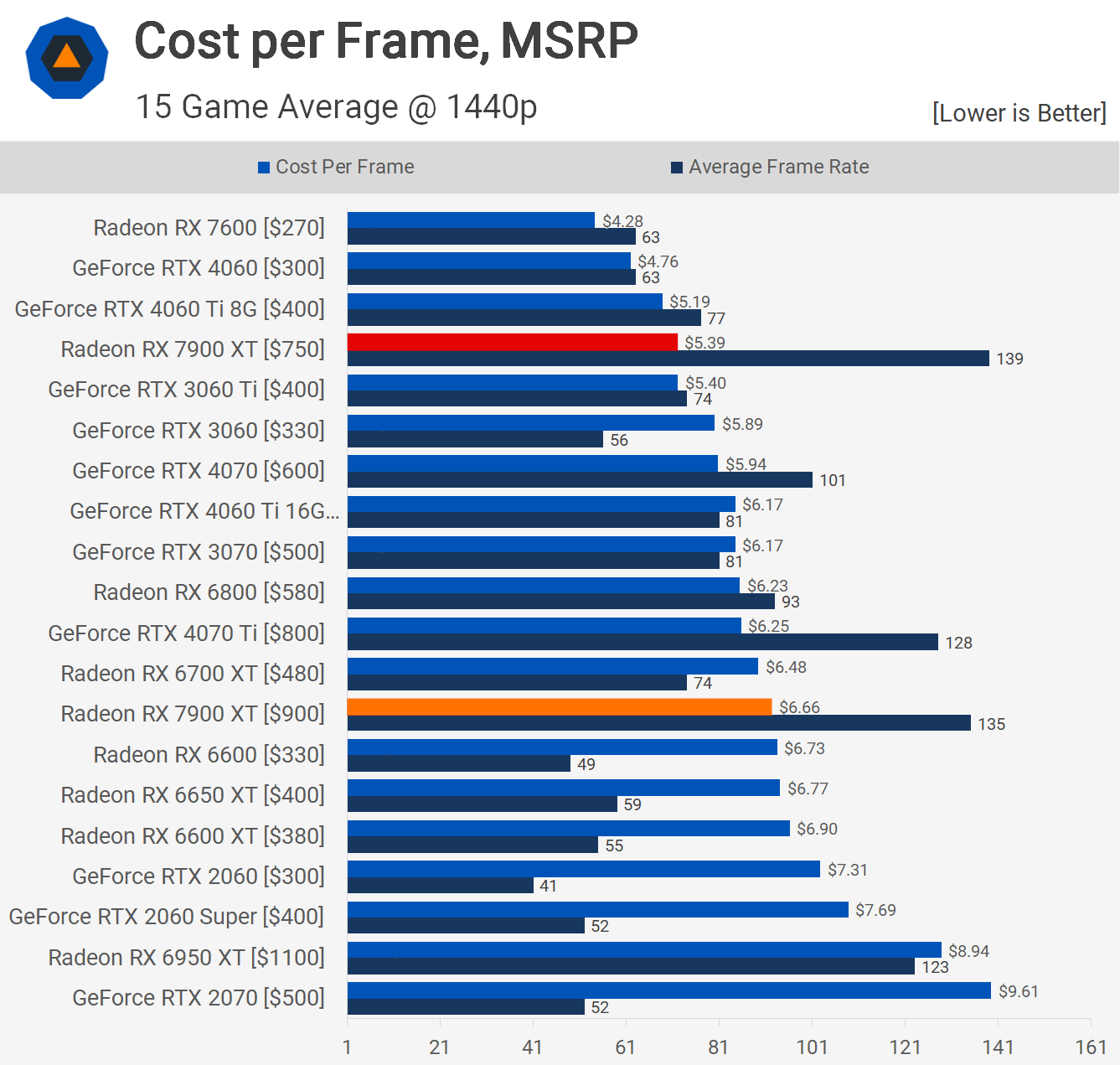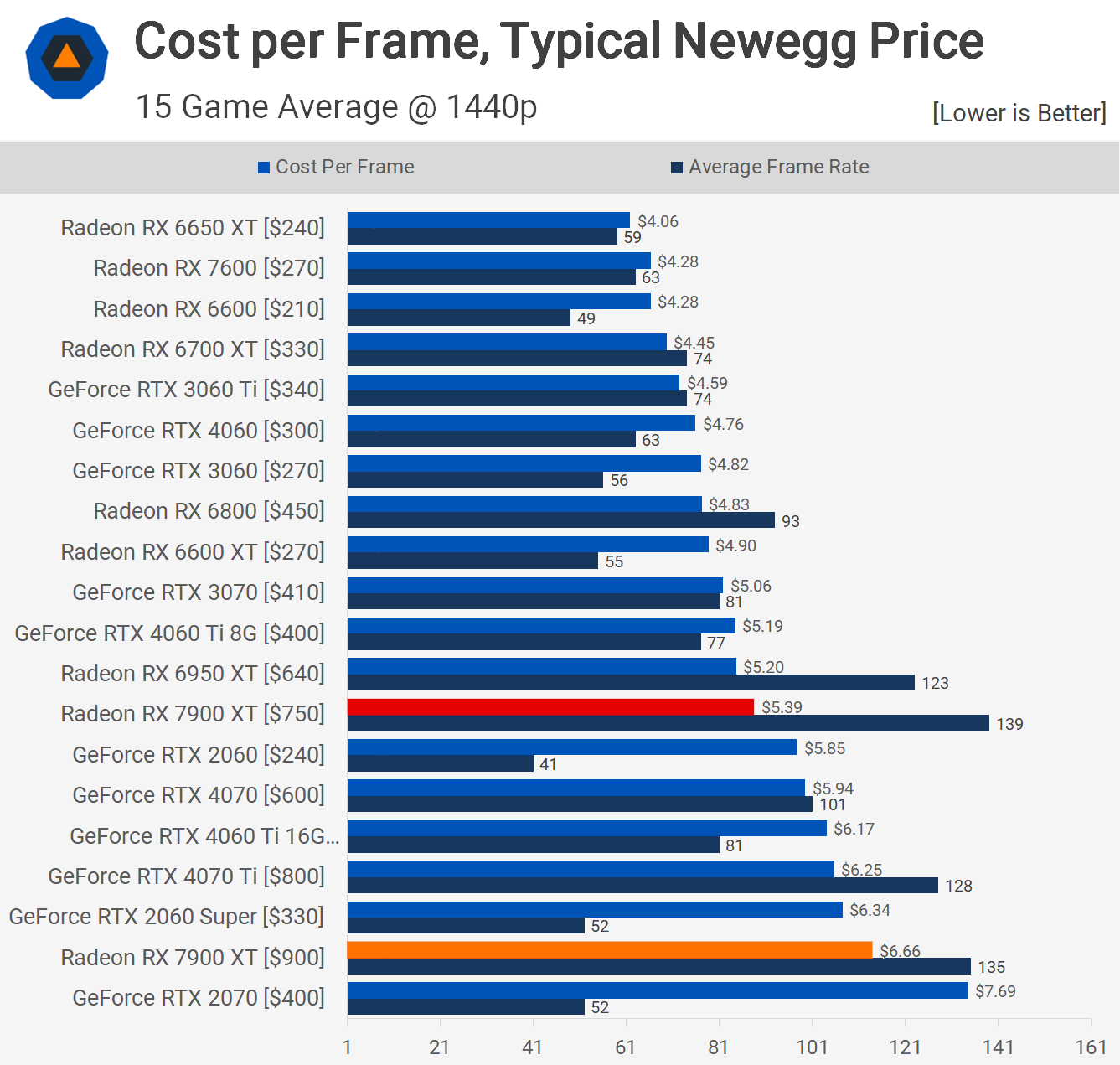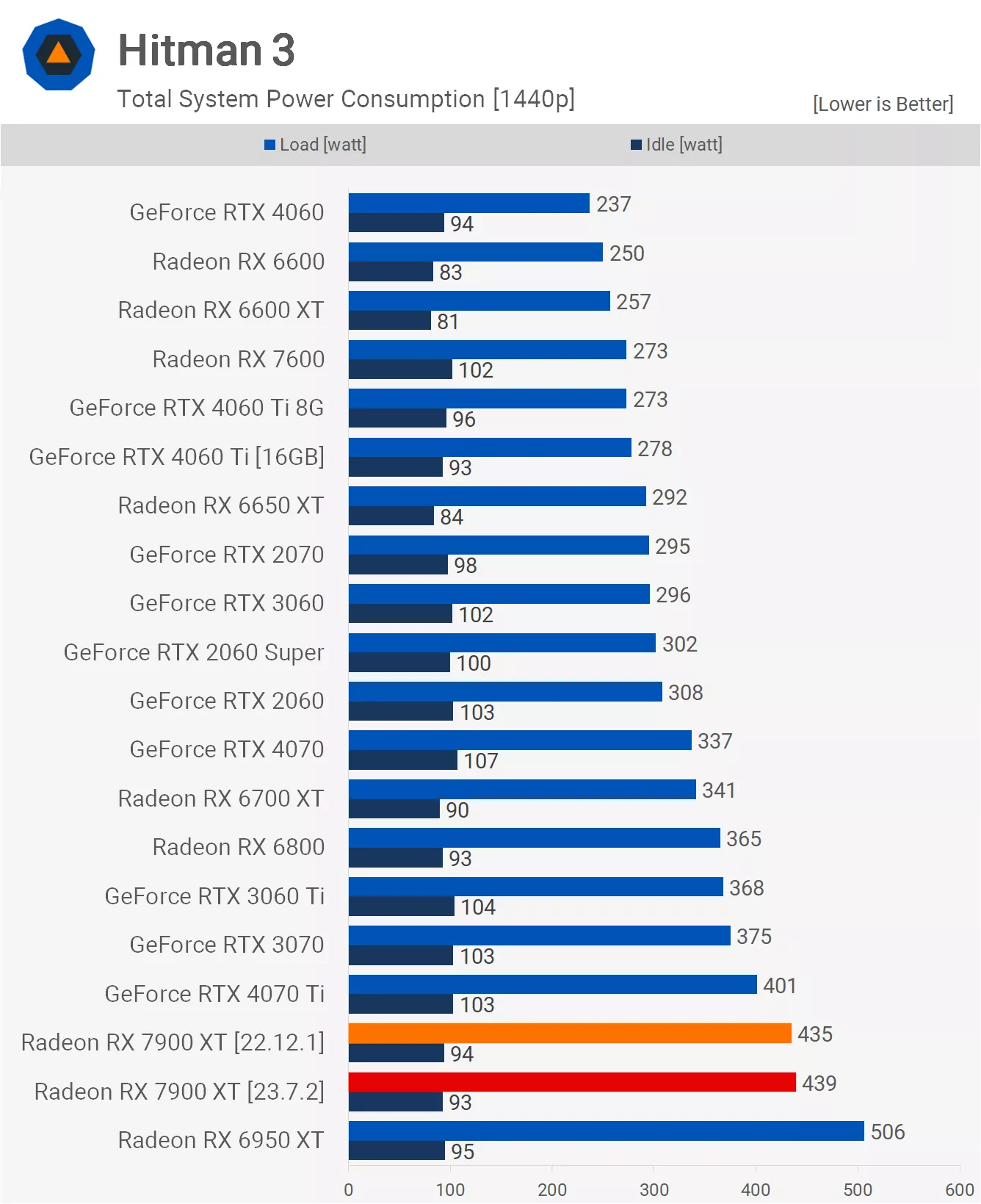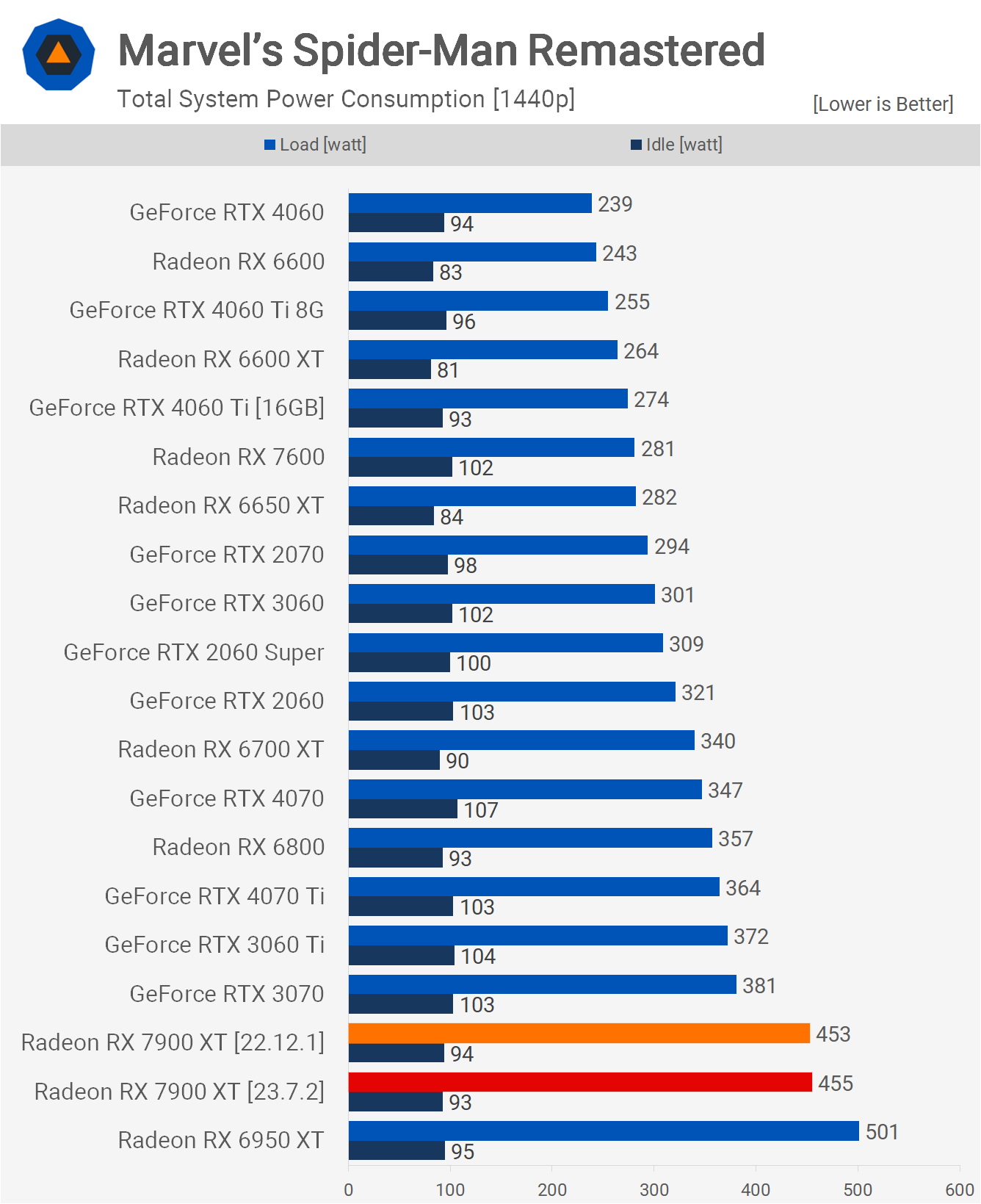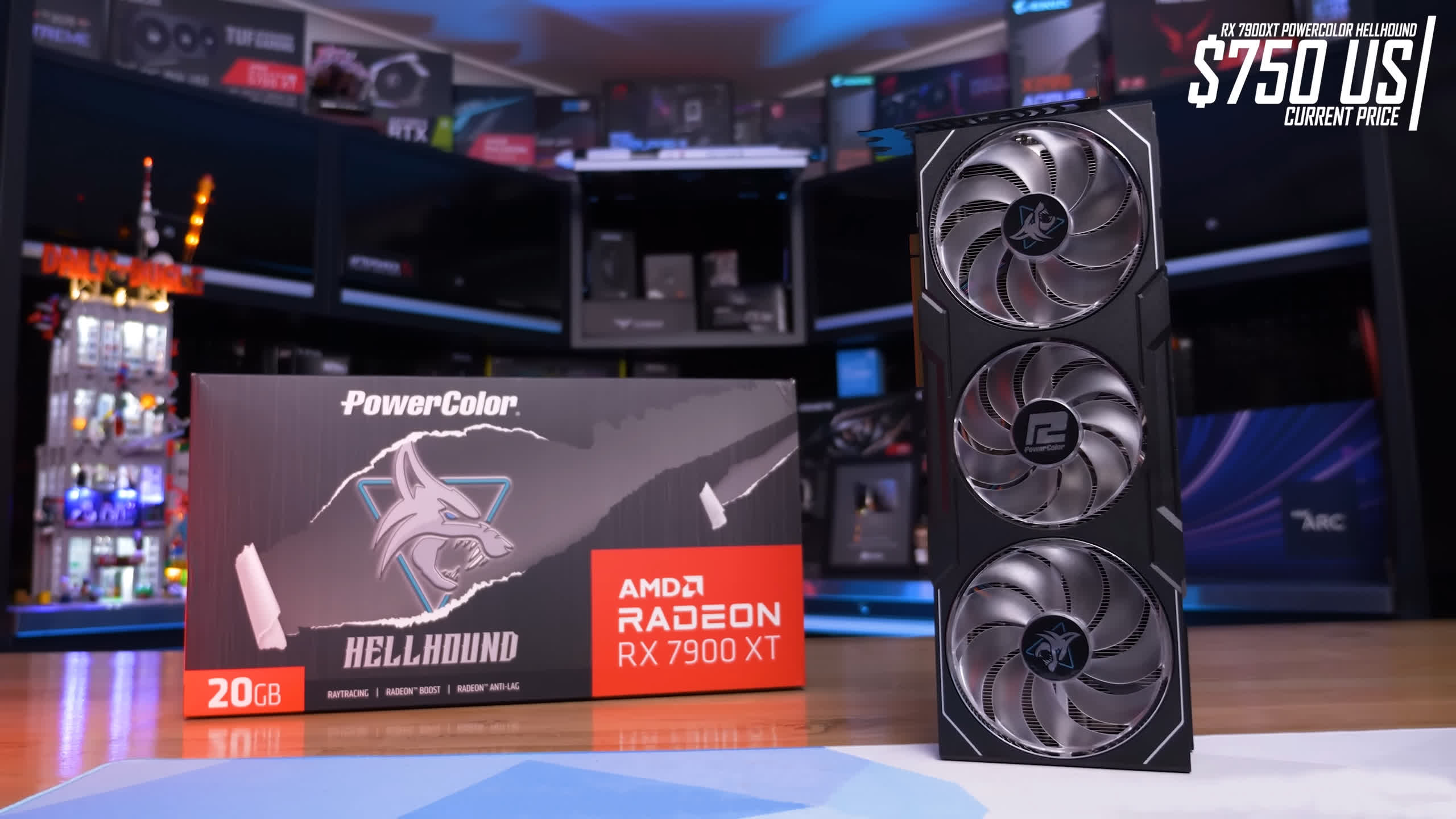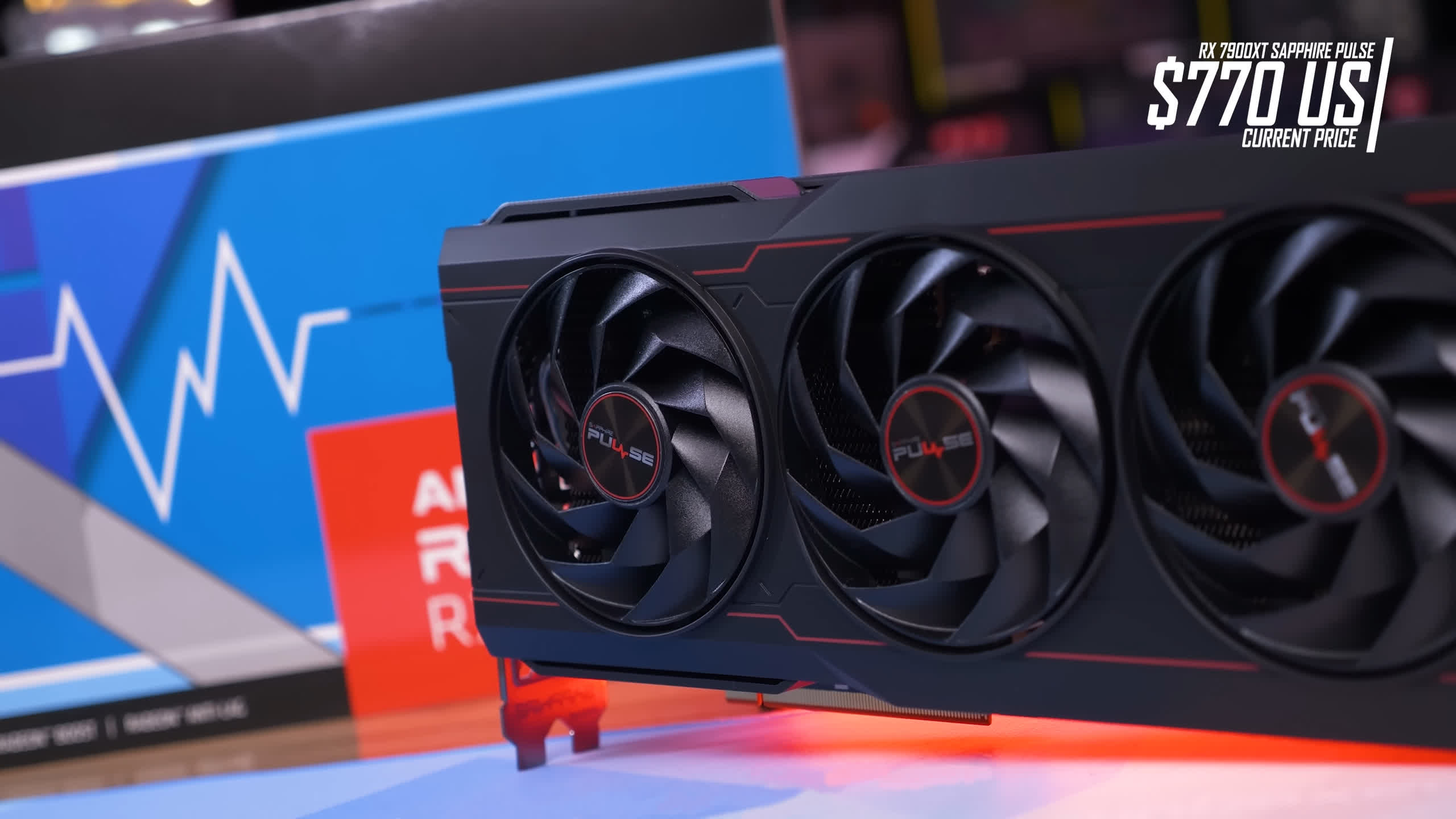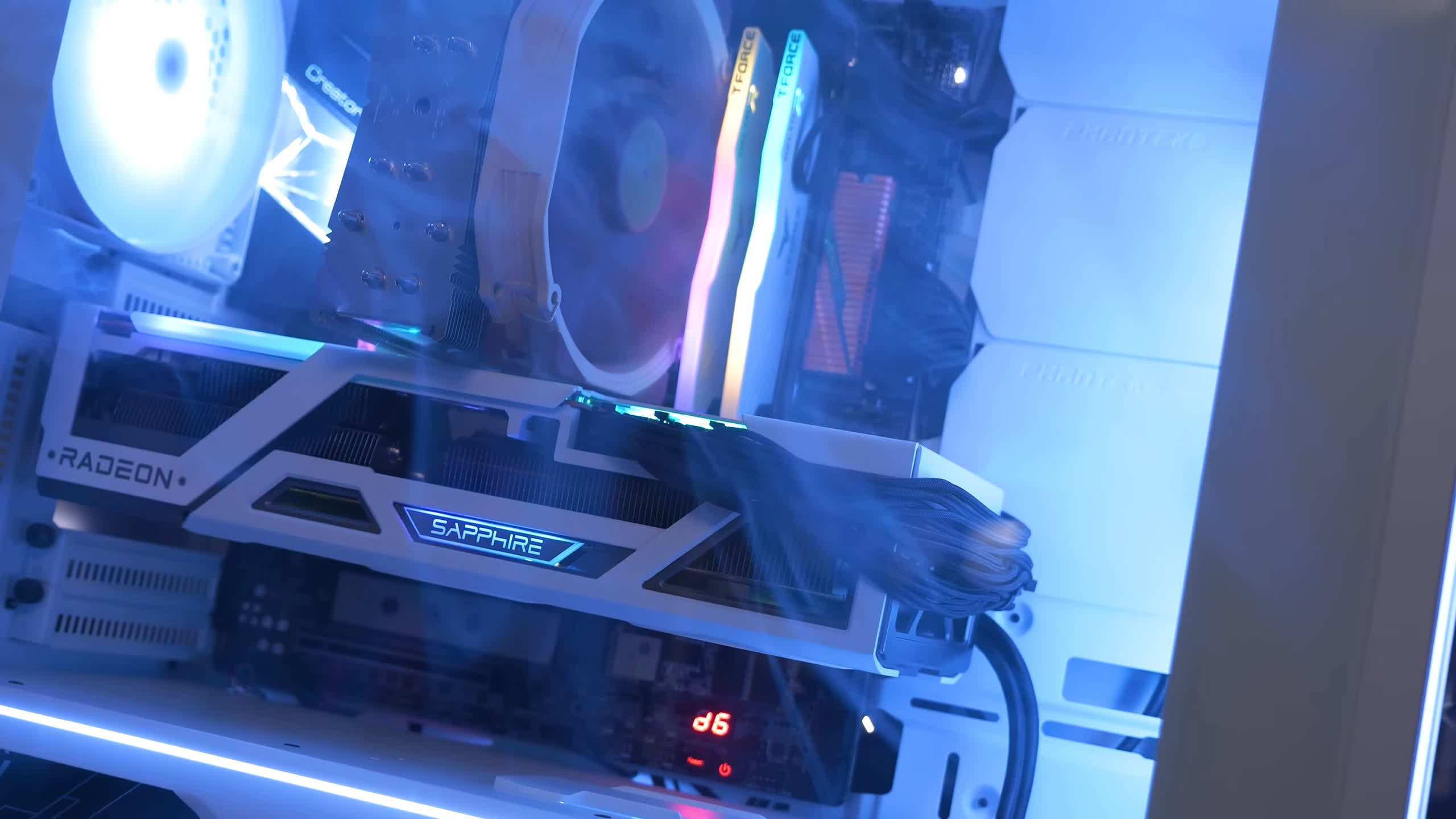Let's pretend for a minute it's December 2022 once again, and the Radeon RX 7900 XT is being released for the first time. But in this scenario, the graphics card is introduced with nine months of driver development and $150 slashed off the MSRP. And yes, the GeForce RTX 4060 series and Radeon RX 7600 have also been released, but we don't need to focus on that...
Back to reality, the Radeon 7900 XT indeed launched with some driver-related issues which hampered performance and it launched at $900, but today we can find at least one model available for $750, and multiple boards selling below $800. Given these conditions, we felt a re-review was due and to assess how much better the 7900 XT could have been.
This won't be a full top-down review as not everything has changed, but we'll examine the games that have seen performance improvements, a few that haven't, and check out a 15 game average data. From there, we'll be able to recalculate cost per frame and see where this GPU stands.
On hand for testing, we have a few Radeon RX 7900 XT cards that we've not assessed before. Some of these models have been available for $750 over the past few weeks. One such model is the Sapphire Pulse, which dropped as low as $720 midway through July and has been $100 below MSRP since March.
Also on hand is the Asrock Phantom Gaming, currently priced at $780 but we saw it selling for as low as $720 last month and has been priced at $800 or lower since March, too.
Then, we have the MSI Gaming Trio Classic, which is relatively harder to find. Newegg has previously offered it for as low as $780, so this MSI card hasn't hit the rock-bottom prices that we've seen from the Asrock and Sapphire models. It's worth noting that MSI was slow to the 7900 series party, releasing their custom cards a few months late, likely influencing pricing.
For testing, we're using our Ryzen 7 7800X3D test system with 32GB of DDR5-6000 memory, using the latest display drivers. That being said, the 7900 XT will be compared with our review driver so we can observe how much progress AMD has made on the driver front over the past nine months.
Benchmarks
First up, we have The Last of Us Part 1, and in this game, AMD has made some improvements, boosting performance at 1080p by 14%, making the 7900 XT 8% faster than the 4070 Ti. It's also encouraging to see a 19% improvement over the 6950 XT, and although that's still significantly less than what AMD was targeting, it's a substantial improvement from the 4% increase we noted earlier.
That margin is reduced to 11% at 1440p for the new driver, increasing the average frame rate from 89 fps to 99 fps. This is still a decent gain, but not quite as impressive as what we observed at 1080p.
Then, at 4K, we're only witnessing an 8% uplift for the newer driver. However, with the 4070 Ti performance dropping at this resolution, the 7900 XT receives a substantial 21% performance advantage.
Moving on to Resident Evil 4, we're not witnessing any performance enhancement with the latest driver, which is quite typical from our 15 game sample.
As we increase the resolution, there is no performance improvement, resulting in the same 155 fps at 1440p and 92 fps at 4K. This sort of result is quite typical when comparing the release driver and the latest driver.
The only other game, besides The Last of Us Part 1, to display a considerable performance improvement or any performance enhancement, is Forza Horizon 5. Here, the latest driver improved the 7900 XT by 19% at 1080p, barely edging out the 4070 Ti by a mere 5% margin. Nonetheless, that's an impressive improvement given that it was previously slower than the 6950 XT.
That said, the margin shrinks significantly at 1440p, and the latest driver now only offers a 12% boost, which admittedly is substantial, but notably less compared to what we saw at 1080p.
Then at 4K, we're only seeing a 4% boost, which was enough to essentially match the 6950 XT. This isn't an impressive result at this extreme resolution, but it's a much-needed improvement nonetheless.
The F1 2022 benchmark only saw a very minor performance improvement at 1080p, basically within the margin of error, with a 2% increase in the average frame rate.
At 1440p, we're looking at less than a 2% increase, moving from 118 fps to 120 fps and then onto a 3% increase at 4K. However, it's worth mentioning that the 1% lows saw a more noticeable 7% increase, which was fairly consistent throughout the F1 2022 testing.
15 Game Average
Here's a look at the 15 game average data, starting with the 1080p numbers. As we stated, two games saw substantial gains with little to no change for the other 13. As a result, overall performance was boosted by just 3% at 1080p. While this will certainly help the 7900 XT, in terms of overall performance, it's hardly game-changing.
Then at 1440p, the margin is reduced to just 3%, taking the overall frame rate from 135 fps to 139 fps. It's nice to see any kind of improvement, but once again, it doesn't significantly alter the 7900 XT's performance.
Finally, at 4K, we're also only looking at a 3% boost overall, which isn't noteworthy. Therefore, let's move on to a cost-per-frame analysis.
Cost per Frame (MSRP)
First up, let's examine the cost per frame data based on the manufacturers' suggested retail pricing figures. At the still-official MSRP of $900, the 7900 XT is a joke, offering the same cost per frame as previous-gen parts that were also of poor value upon release, such as the $330 Radeon RX 6600.
Ideally, we'd want a part like the Radeon 7900 XT offering at least 15% better value than the RX 6800, but at the $900 MSRP, it was 7% more expensive.
Had AMD released the 7900 XT at $750, it would have been 13% cheaper than the RX 6800, significantly closer to where we think it should have been. Realistically, it should have been priced at $700, but $750 marks a substantial improvement from $900.
But of course, the challenge for all current-gen GPUs is the massive surplus of older parts. Even today, the Radeon 6950 XT can still be had for as little as $640, which makes a $900 7900 XT utterly useless. But at $750, if you were in the market for a high-end GPU, you'd likely pay the small premium for the faster Radeon 7900 XT. It's likely going to age better with further driver development and offers a bit more VRAM for good measure.
It also beats out the GeForce RTX 4070 Ti priced at $800. There's no way frame generation is worth a 16% premium for most gamers. We personally find that hard to believe. Of course, if you play competitive multiplayer titles, then frame gen is completely worthless. Surely, the 20GB VRAM buffer offered by the 7900 XT is a significantly greater drawcard given the 4070 Ti only has 12GB. But, let us know what you think in the comments section.
Power Consumption
We'll quickly touch on power usage with some total system figures. When compared to the 4070 Ti, total system usage in Hitman 3 was increased by 9%, and both GPUs produced the same frame rate in that example. So the 4070 Ti is certainly more efficient, but there's not a significant difference.
That said, in Spider-Man Remastered, the 7900 XT pushed total system usage 25% higher, though it was 7% faster. So again, the GeForce GPU is certainly more efficient, but the difference isn't always that significant.
What We Learned (Months Later)
So that's what could have been for our day-one Radeon 7900 XT review. Nine months ago we concluded that this GPU needed to cost no more than $750. That was the absolute highest price we could see the 7900 XT making sense, and now that appears to be as true as ever. Depending on where you live, you should be able to purchase a 7900 XT at that price.
When we were in the making of this review, about a week ago, the Sapphire Pulse 7900 XT model was available for just $750 on Newegg. It's since been adjusted to $770. The PowerColor Hellhound has also often been available at $750, though right now it's closer to the $770-$790 range alongside a few other alternatives. We expect the 7900 XT's pricing to be all over the place for the next few weeks and months, it won't always be available at $750, but you should absolutely be on the lookout for a good deal.
On the performance front, as nice as the massive improvement in Forza Horizon 5 and The Last of Us Part 1 are, overall, the 7900 XT isn't much faster today than it was nine months ago. The biggest factor here is the heavily discounted price from the original $900 mark. Moreover, the cheapest GeForce RTX 4070 Ti we can find is around $800, and you'd be mad to buy that over a discounted 7900 XT, in our opinion.
All said and done, it's a shame AMD botched the Radeon 7900 XT release. We were recently discussing how poorly the Radeon division has been executing for years now, and although RDNA 3 fell short of performance targets, the right pricing could have made this series a huge success.
Nonetheless, we believe this generation was destined to fail. It failed because the crypto boom ended overnight, leaving AMD and Nvidia with massive silicon orders with TSMC and Samsung, leading to a massive surplus of GPUs that gamers didn't want, at least not without a hefty discount applied. But had the crypto boom not ended, this generation would have been even worse.
While AMD should and could have released the 7900 XT at $750 from the get-go, or even lower, that would have left them holding a massive bag of 6900 XT and 6950 XT's, a situation they absolutely didn't want to find themselves in. That said, you have to wonder if making that sacrifice to claw back market share from Nvidia would have been a winning long term strategy.
Hard to say, but what we do know is that yet another generation has passed us by where the Radeon group continues to tread through the waters of irrelevancy, which is unfortunate for gamers everywhere.
